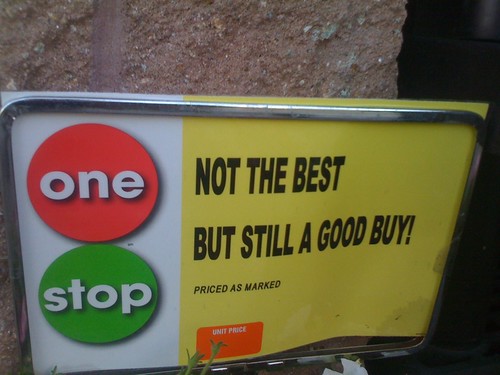
People often dislike marketers because some are deceptive.
Dave Morgan recently posted a rant about deceptive advertising practices. Specifically, he called out a “Continuation Notice” invoice from a media trade newsletter company. The bill for $1,195 to “continue” the newsletter service for the next year was cleverly designed to make you think it was a renewal invoice. But it wasn’t. It was designed to prey upon unsuspecting recipients who might mistakenly pay it.
I can’t stand companies that do this. It gives marketers a bad name. Even worse, it makes suckers out of the victims.
Direct mail has become so deceptive — and increasingly ignored by prospects — that some marketers are taking the opposite tack: blatantly labeling their mail as “Advertisement.”
Empire BlueCross BlueShield took this tack with a recent solicitation sent to me. First, the front of the envelope said “THIS IS AN ADVERTISEMENT,”making completely clear the intention of the mailer. That made me put my guard down. Next, the envelope had a transparent window (ironic?) which prominently featured the brand, along with a specific address, and a preview of the offering and benefits. No surprises, no tricks. I like that.
This solicitation caught my attention and earned some trust, so I did something I rarely do: open an envelope I suspect or know is a direct mail solicitation. Inside, Empire BlueCross BlueShield included an informational offer letter and a signup card that gave clear options on how to qualify and learn mo
re. What I really liked about the signup card is that it clearly indicated the purpose was to connect me with a sales agent for a private consultation.
I was almost ready to call Empire BlueCross BlueShield because this solicitation did so much right: it was transparent, honest, to-the-point and potentially helpful. Empire BlueCross BlueShield didn’t hide the fact that they wanted to nurture my interests for a conversation with a salesperson. That was OK, because the salespeople in this instance were positioned more as solutions providers.
In the end, I didn’t respond to the solicitation because I’m not in the market for health insurance. However, I’m now more likely to remember Empire BlueCross BlueShield when I come back into the market. This example underscores that direct response is not just about direct response; it’s as much about nurturing future prospects and shaping brand equity.
The only thing I would recommend in this case is to ensure you get the name and address correct. After reading the entire solicitation, I finally noticed that it was directed to my dad, albeit addressed to my home. Still, the effort had an impact on me.
Lesson? An abundance of marketing pitches has dulled the attention and receptivity of customer prospects. Still, if your only reason for being there is to sell, you’re better off disclosing that upfront. The trick is to win trust and ensure the sales experience and offering is one of high value for the prospect.
This also was my latest column in MediaPost.
(Photo credit: Adam Pieniazek)
